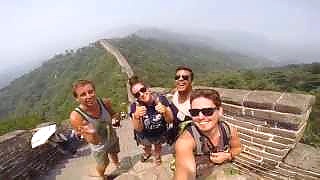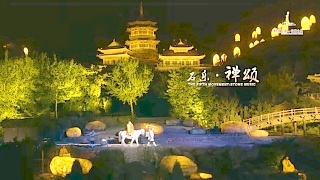
|
With China Walking Tour ...
Ancient City of PingYao visitor guide
Overview
The Ancient City of PingYao, located in ShanXi province, is one of the best-preserved ancient walled cities in China. Recognized as a UNESCO World Heritage Site, Ping Yao offers a fascinating glimpse into China's architectural and cultural history. The city's layout, traditional buildings, and historical sites make it a must-visit destination for history enthusiasts and cultural explorers.
History
Ping Yao's history dates back over 2,700 years, with its origins in the Western Zhou Dynasty (1046–771 BC). The city flourished during the Ming (1368–1644) and Qing (1644–1912) dynasties as a center of trade, finance, and banking. Its well-preserved architecture and urban planning reflect the prosperous period of ancient China, making it an invaluable cultural and historical treasure.
Main Attractions
City Walls
The ancient city walls of Ping Yao are among the most complete in China. Constructed during the Ming Dynasty, these imposing walls stretch for 6 kilometers and feature 72 watchtowers and numerous gates. Visitors can walk along the walls, enjoying panoramic views of the city and experiencing the historical significance of this ancient fortification.
Rishengchang Draft Bank
Rishengchang, established in the early 19th century, is considered the first draft bank in China. This historical site offers insights into the origins of China's banking system and showcases traditional banking practices. The museum within the bank exhibits artifacts and documents that highlight the financial history of Ping Yao.
Ancient Government Office
The Ancient Government Office, also known as the Ping Yao County Office, served as the administrative center of the city. This well-preserved complex includes the courthouse, prison, and various government offices. Visitors can explore the rooms and halls, gaining an understanding of the judicial and administrative processes of ancient China.
Temple of the City God
The Temple of the City God is a significant religious site in Ping Yao. Dedicated to the deity believed to protect the city, the temple features beautiful architecture, intricate carvings, and serene courtyards. It remains an active place of worship and offers a peaceful retreat for visitors.
Culture and Traditions
The Ancient City of Ping Yao is a cultural treasure trove, with a rich heritage of traditional customs, crafts, and festivals. The city's residents continue to preserve and celebrate their cultural traditions, offering visitors a unique opportunity to experience the living history of this ancient city. From traditional performances to local crafts, Ping Yao's cultural vibrancy is palpable.
Activities and Experiences
Walking Tours
Explore Ping Yao on foot with a guided walking tour. These tours provide valuable insights into the city's history, architecture, and culture, and are led by knowledgeable local guides. Walking through the ancient streets and alleyways is a delightful way to immerse yourself in the city's unique charm.
Shopping for Local Crafts
The shops and markets in Ping Yao offer a variety of traditional crafts and handmade products. Visitors can shop for souvenirs, including lacquerware, paper cuttings, and traditional clothing, all crafted by local artisans. These items make for unique and meaningful mementos of your visit.
Sampling Local Cuisine
Ping Yao is known for its delicious local cuisine, which reflects the flavors and traditions of Shanxi province. Visitors can sample a range of traditional dishes at the city's restaurants and food stalls. Don't miss trying the local specialties, such as Ping Yao beef, daoxiao noodles, and steamed buns.
Attending Festivals
Throughout the year, Ping Yao hosts various traditional festivals that celebrate local culture and heritage. These festivals feature music, dance, and traditional performances, offering visitors a unique and immersive cultural experience. Check the local event calendar to see if any festivals coincide with your visit.
Accommodation
Ping Yao offers a range of accommodation options, including traditional guesthouses, boutique hotels, and homestays. Staying in a traditional courtyard hotel provides an authentic experience and allows visitors to immerse themselves in the historical atmosphere of the city. These accommodations often feature traditional architecture and décor, adding to the charm of your stay.
Travel Tips
Best Time to Visit: The best time to visit Ping Yao is during spring (April to June) and autumn (September to November) when the weather is pleasant, and the city is less crowded.
Getting There: Ping Yao is accessible by train, with Ping Yao Ancient City Railway Station serving high-speed trains from major cities. The nearest airport is Taiyuan Wusu International Airport, which offers connections to various domestic and international destinations.
Opening Hours: The ancient city is open to visitors year-round. Specific attractions and shops may have their own operating hours.
Entrance Fees: There may be entrance fees for certain attractions within the city. It is advisable to check the latest fees before planning your visit.
Dress Comfortably: Wear comfortable clothing and sturdy walking shoes, as the city's streets are cobbled and can be uneven.
Respect Local Customs: Be respectful of local customs and traditions, especially when visiting temples and cultural sites. Always ask for permission before taking photos of people.
Stay Hydrated: Carry water, especially if you plan on exploring the city extensively. It's also a good idea to bring snacks or purchase food from local vendors.
|




 A trip to China 中国 (2)
A trip to China 中国 (2)


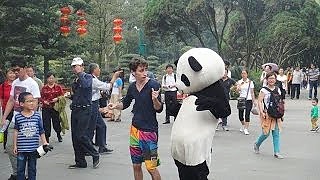
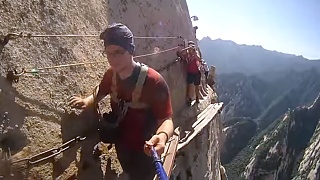
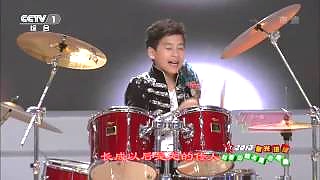
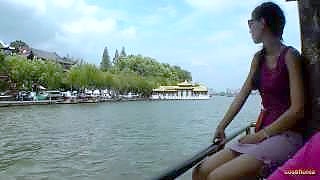
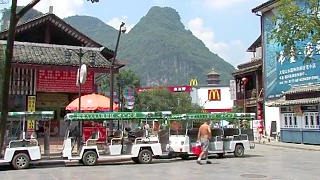

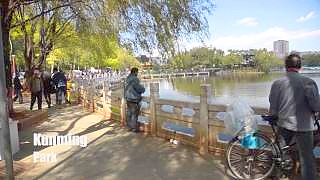
![Hong Kong, Shanghai, the Great Wall and much more. With Ryan and Emma / One Shot Adventures . . . [videogallery type=playlist id=PLIHYvA1qSN5P1hZGrHh418MUuols6OfPS c=2] China trip video series](https://img.youtube.com/vi/lk0HMs_6gA4/mqdefault.jpg)
